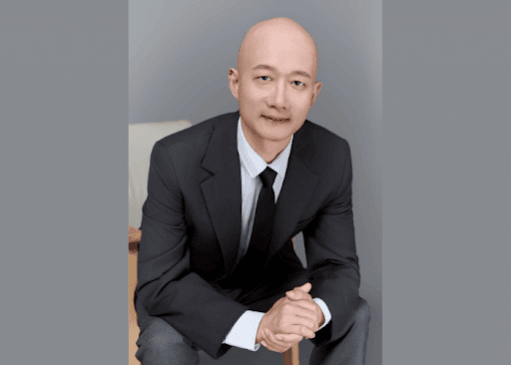Jiantao Liu’s Mission: Cultivating a Healthier Planet with Green Technology

As the world grapples with environmental degradation and the pressing need for sustainable food production, Jiantao Liu is making a difference. His unwavering pursuit of green technologies has yielded groundbreaking solutions that are transforming agriculture globally, addressing critical challenges while promoting environmental stewardship.
Green Solutions: Organic Carbon Fertilizers and Lignohumate in Action
Agriculture faces significant challenges, including soil degradation, environmental impact, and the need for sustainable practices. Liu’s work in organic carbon fertilizers and the development of lignohumate marks notable progress in sustainable agriculture. His innovativeness is transforming soil health and ecosystem vitality.
Enriched with humic acid, Liu’s organic carbon fertilizers revolutionize soil rejuvenation. Addressing the environmental impact of conventional fertilizers, they enhance soil structure, optimize water retention, and facilitate plants’ nutrient absorption. They also address carbon deficiency in agricultural practices, nurturing more resilient and productive ecosystems for crop growth. Research identifies additional benefits such as enhanced root growth, higher seed germination rates, and improved nutrient uptake efficiency through water bridging.
These benefits are particularly relevant in Australia, where approximately 75% of the land is arid. By strengthening the soil’s ability to retain water and nutrients, Liu’s fertilizers address the challenges of arid conditions, offering a sustainable solution for Australian agriculture. With soil erosion and acidity impacting over 50 million hectares of Australian land, Liu’s focus on revitalizing soil vitality through organic carbon interventions is both timely and essential.
In addition to his work on organic carbon fertilizers, Liu has developed lignohumate, which is his crowning achievement. A brilliant blend of humic acid and lignin, this groundbreaking compound enriches soil fertility while offering durability and versatility. It is particularly valuable for sandy or challenging soils common in Australia by improving water retention and stability.
Lignohumate’s applications extend from environmental remediation to animal feed, which could benefit Australia’s livestock industry. By improving animal health, digestion, and productivity through enhanced nutrient absorption and gut health support, lignohumate may lead to better feed conversion rates, reduced disease instances, and improved animal welfare. Moreover, it could contribute to the sustainability of Australia’s livestock sector by minimizing the environmental impact of animal waste and promoting resource efficiency. As challenges related to animal health, productivity, and environmental sustainability remain, Liu’s lignohumate provides a solution supporting the sector’s long-term success and resilience.
Addressing Antibiotic Resistance
Liu’s lignosulfonate-based animal feed additives tackle the pressing issue of antibiotic overuse in livestock farming. These natural alternatives emulate the growth-promoting properties of antibiotics without the associated drawbacks, bolstering animal health and biosecurity while safeguarding food safety.
“Our lignosulfonate additives match the growth facilitation of antibiotics but at a reduced cost, driving the industry toward more sustainability,” Liu affirms. Independent studies have confirmed the efficacy of these additives in reducing Salmonella populations, thereby enhancing livestock health and biosecurity. Additionally, they optimize nutrient utilization, enhance gut functionality, support beneficial gut microbiota, and strengthen the immune system.
As Australia’s agricultural exports hit a record $78.1 billion in 2022, upholding the highest food safety standards is imperative. Liu’s lignosulfonate additives offer a promising solution to antibiotic resistance in livestock farming, potentially reshaping animal nutrition practices and improving the safety and quality of Australian agricultural exports. He aims to make Australia a purveyor of premium, safe agricultural products.
Transforming Waste into Wealth
Recognizing Australia’s abundant brown coal reserves, Liu has also pioneered a method to convert this waste product into a valuable source for humic acid production. This ingenious approach addresses waste management and contributes to soil rejuvenation.
By targeting the conversion of brown coal, especially from regions like Victoria and Adelaide, into humic acid, Liu tackles two critical challenges: managing Australia’s abundant coal waste and improving its agricultural soils. He has ingeniously converted a major environmental burden into an agricultural benefit. This initiative aligns with Australia’s goals for environmental responsibility and agricultural productivity.
Environmental Restoration, Combating Contamination
Liu’s expertise extends to environmental restoration, addressing critical issues like heavy metal contamination, antibiotic residues, and excess chemical fertilizers. His tailored remediation plans utilize humates and lignin to revitalize soil and water ecosystems and promote ecological balance and sustainable agricultural practices.
Central to Liu’s strategy is an exhaustive site investigation conducted at the Kushan Greven laboratory. By rigorously testing soil and water samples, his team can identify the precise pollutants, pH levels, and soil cation exchange capacities (CEC), among other critical parameters. This data is instrumental in developing custom solutions to meet the unique challenges of each contaminated site.
“Our approach is finely aligned with the ambitious ‘4 per 1000 Initiative’ from the COP21 Paris Climate Conference, aiming for an annual 4% increase in soil carbon content,” Liu explains. By deploying organic carbon fertilizers, Liu fosters a sustainable agricultural era, deeply entwined with the broader health of the environment and the fight against climate change.
Dust Control for Mining: An Eco-Friendly Solution
Expanding into Australia’s mining sector, Liu has pioneered using lignosulfonate as an eco-friendly dust suppressant. This innovative solution addresses air pollution and contributes to occupational and public health, reflecting Liu’s commitment to sustainable industrial practices.
The mining industry, accounting for 21% of Australia’s GDP growth in the past decade, faces significant environmental challenges, particularly with air pollution. National Pollutant Inventory data shows a sharp increase in particulate emissions from coal mines, highlighting a major concern for occupational and public health. Liu’s work demonstrates lignosulfonate’s effectiveness in reducing dust pollution and contributing to environmental conservation efforts.
Harmonizing Productivity and Environmental Stewardship
Liu’s dedication to developing green technologies has yielded innovative solutions that harmonize agricultural productivity with environmental stewardship. His initiatives are reshaping the global agricultural landscape from organic carbon fertilizers to sustainable animal feed and environmental restoration to eco-friendly dust control.
As climate change and resource depletion remain, visionaries like Liu offer hope, demonstrating that green technology can cultivate a healthier planet through judicious application. His strategic approach prioritizes yield enhancement and the cultivation of a sustainable ecosystem conducive to long-term agricultural prosperity – a crucial focus in Australia, where agriculture underpins the economy and safeguards the country’s diverse industries.
